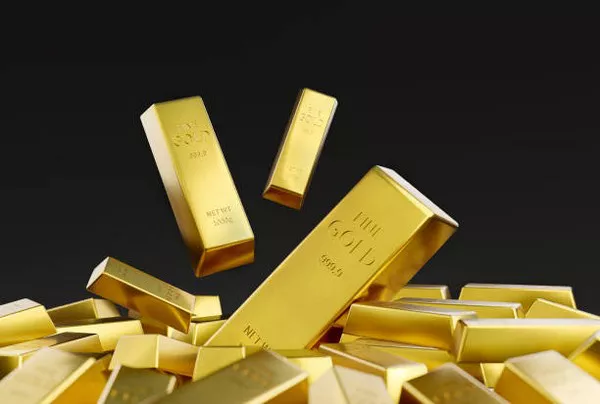In the realm of commodities trading, gold holds a unique allure as a safe-haven asset and a hedge against economic uncertainty. Gold futures, a derivative instrument, play a crucial role in the global financial markets by allowing traders to speculate on the future price movements of gold. Central to trading gold futures is the selection of an appropriate exchange, each offering distinct advantages and characteristics tailored to different investor needs.
Introduction to Gold Futures
Gold futures contracts are standardized agreements to buy or sell a specified amount of gold at a predetermined price at a future date. These contracts are traded on various exchanges worldwide, providing investors with opportunities for price discovery, hedging, and portfolio diversification.
Importance of Choosing the Right Exchange
Selecting the right exchange for trading gold futures is paramount to a trader’s success. Each exchange has its own rules, liquidity levels, trading hours, and contract specifications, which can significantly impact trading strategies and outcomes. Understanding these differences is essential for making informed decisions and optimizing trading performance.
Major Exchanges for Gold Futures Trading
1. COMEX (New York Mercantile Exchange)
COMEX, a division of the CME Group, is one of the largest and most liquid futures exchanges globally. It offers a range of gold futures contracts, including the benchmark 100-ounce contract. Key features of COMEX gold futures include:
Contract Size and Specifications: The standard contract size is 100 troy ounces of gold, with contract months spanning across the calendar year.
Liquidity and Trading Volume: High liquidity due to its global reach and extensive participation from institutional investors, speculators, and hedgers.
Price Discovery: Influential in establishing global gold prices due to its large trading volumes and participation.
Regulation and Oversight: Subject to regulation by the Commodity Futures Trading Commission (CFTC) in the United States, ensuring market integrity and transparency.
COMEX is favored by institutional investors and large traders due to its deep liquidity and robust market structure, making it suitable for both hedging and speculative purposes.
2. TOCOM (Tokyo Commodity Exchange)
TOCOM is Japan’s largest commodity futures exchange and a prominent player in the Asian markets. Key features of TOCOM gold futures include:
Contract Size and Specifications: The standard contract size is 1 kilogram of gold, with monthly contract expirations.
Regional Focus: Primary exchange for gold futures trading in Asia, influencing pricing dynamics in the region.
Trading Hours: Operates during Asian trading hours, providing access to traders in different time zones.
Regulatory Framework: Regulated by the Japanese Financial Services Agency (FSA), ensuring compliance with local laws and regulations.
TOCOM appeals to traders looking to access the Asian market, diversify their trading exposure, and capitalize on regional price movements.
3. MCX (Multi Commodity Exchange of India Ltd.)
MCX is India’s largest commodity futures exchange, offering gold futures contracts tailored to domestic market needs. Key features of MCX gold futures include:
Contract Size and Specifications: The standard contract size is 1 kilogram of gold, with multiple contract expirations throughout the year.
Domestic Market Focus: Significant exchange for gold futures trading within India, catering to local demand and market conditions.
Regulation: Regulated by the Securities and Exchange Board of India (SEBI), ensuring adherence to domestic financial regulations.
Liquidity and Participation: Growing liquidity with increasing participation from domestic traders, jewelers, and institutional investors.
MCX provides a platform for traders interested in the Indian market, leveraging local price trends and hedging against rupee-denominated risks.
Comparative Analysis and Considerations
When choosing an exchange for trading gold futures, several factors should be considered:
Liquidity: High liquidity facilitates ease of trade execution and tighter bid-ask spreads, reducing trading costs.
Contract Specifications: Variations in contract sizes, delivery methods, and expiration dates impact trading strategies and risk management.
Regulatory Environment: Strong regulatory oversight ensures market integrity, transparency, and investor protection.
Global Influence: Exchanges with significant global influence can impact international gold prices and market sentiment.
Strategic Approaches to Trading Gold Futures
Successful trading in gold futures requires a comprehensive understanding of market fundamentals, technical analysis, and macroeconomic factors influencing gold prices. Traders may adopt various strategies, including:
Speculation: Capitalizing on short-term price movements based on technical indicators or market sentiment.
Hedging: Managing price risk associated with physical gold holdings or gold-related businesses.
Spread Trading: Exploiting price differentials between related futures contracts to capture arbitrage opportunities.
Seasonal Trends: Leveraging historical price patterns and seasonal fluctuations in gold demand.
See Also How Is Gold Bad For The Economy?
Conclusion
In conclusion, selecting the right exchange for trading gold futures is a critical decision that directly impacts trading outcomes and profitability. Each exchange offers distinct advantages and caters to different investor preferences, from liquidity and regulatory oversight to contract specifications and global influence. By understanding these factors and aligning them with trading objectives and strategies, investors can effectively navigate the complexities of the gold futures market and capitalize on opportunities presented by this precious metal.
As global economic uncertainties persist and the role of gold as a safe-haven asset remains pivotal, the demand for gold futures trading is expected to continue growing. Whether trading on COMEX, TOCOM, MCX, or other exchanges, informed decision-making and strategic execution are essential for success in this dynamic and evolving market landscape.


